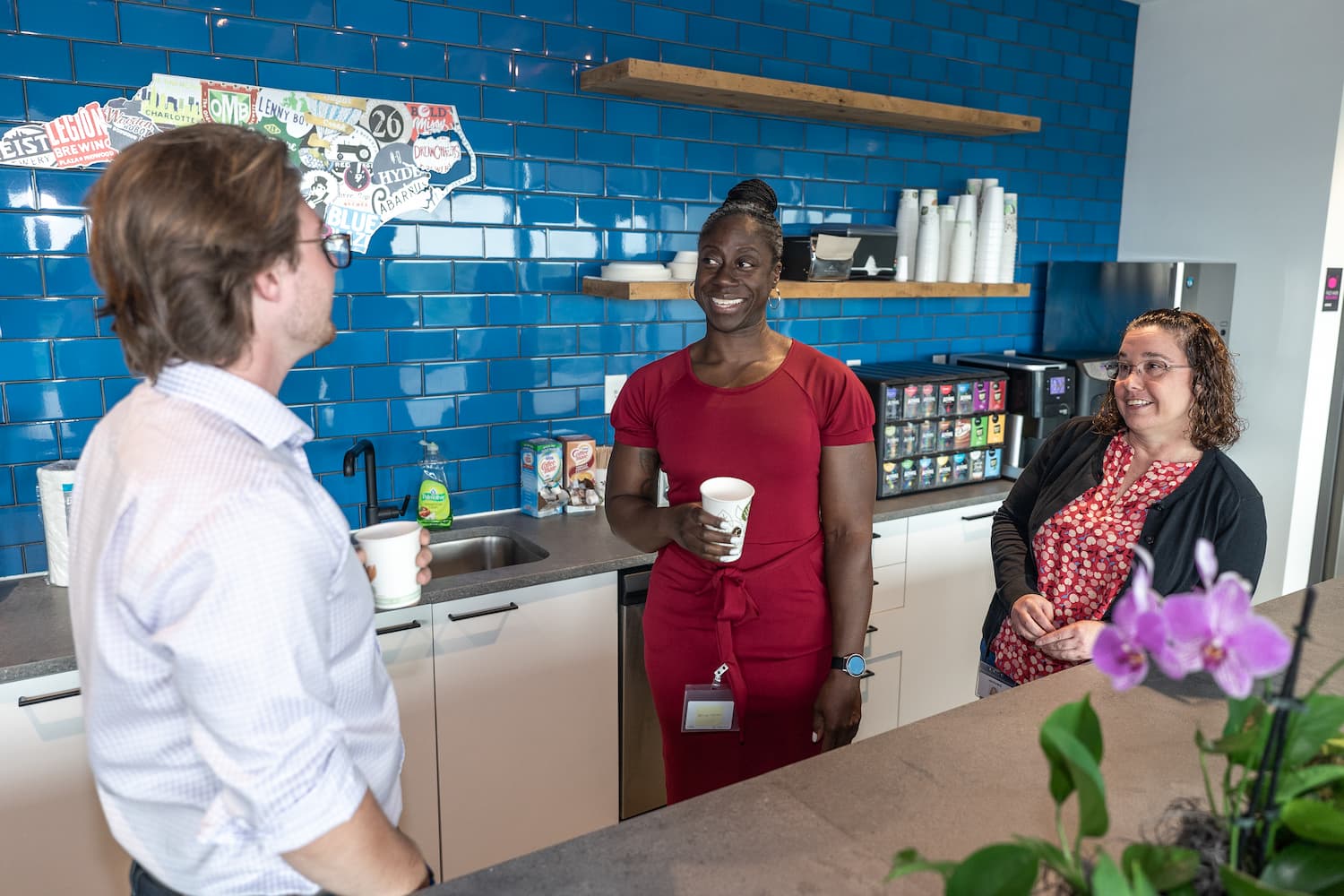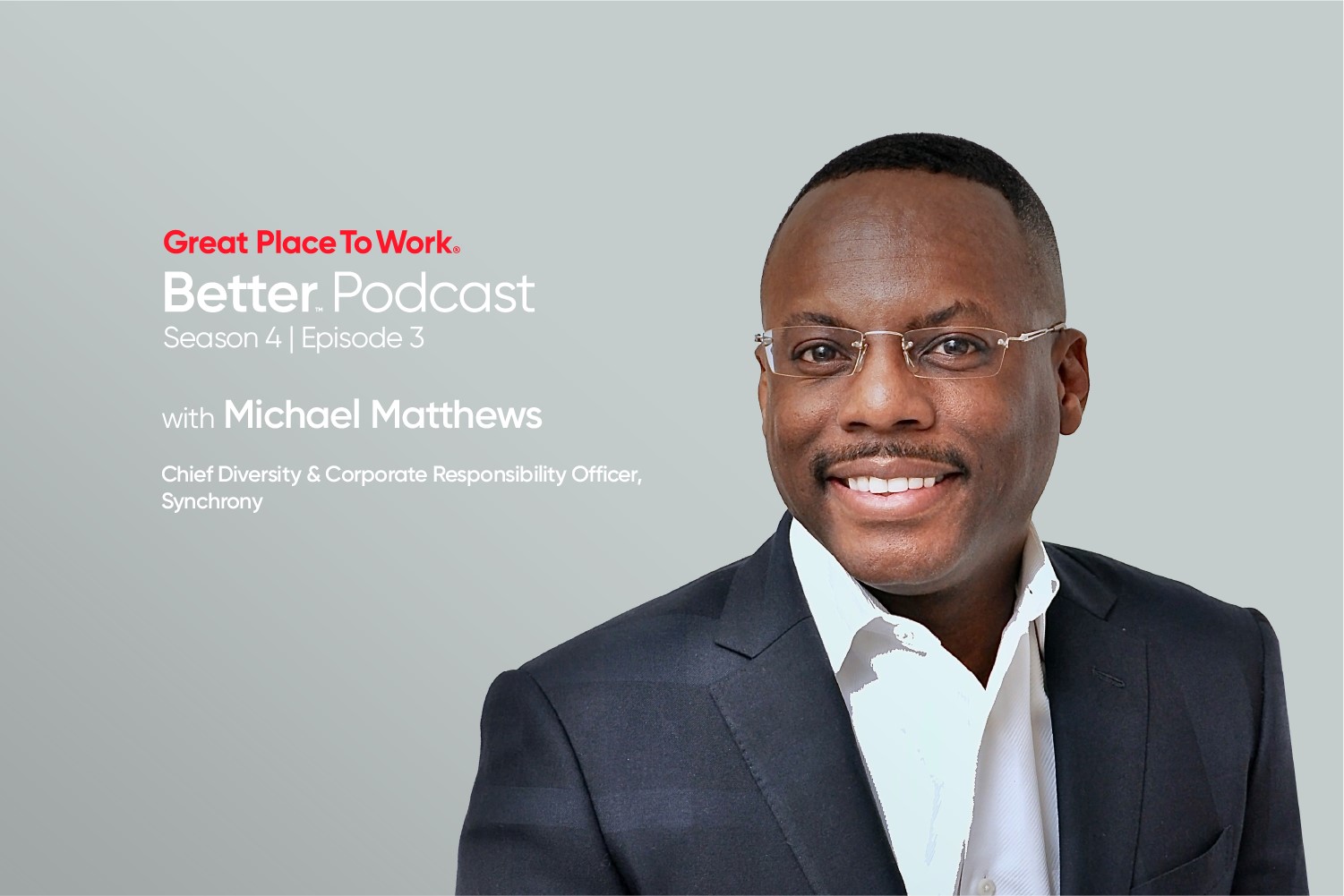Certification, Employee Experience
A version of this interview appears on the isolved blog. We loved it so much, we had to share it with you here.
Employee expectations for the workplace are rising, and diversity, equity, inclusion and belonging (DEIB) have become core to company success.
However, measuring culture and DEIB can be difficult. To prove internal engagement efforts are paying off, many organizations turn to third-party evaluations to gauge their impact.
Here at Great Place To Work®, an employee survey and company culture research firm, we help organizations like isolved quantify their culture through employee feedback and benchmark data.
isolved employees recently participated in the Great Place To Work Trust Index™ survey and the results show that their organization practices what it preaches.
The company got extensive positive feedback from employees who participated in the survey and they met the benchmark to become Certified™ by Great Place To Work.
isolved’s Engagement Team – including director of employee engagement Dustin Stipanovich and engagement and training specialist Roni Roberts – gave their take on what it means to be a Great Place To Work-Certified™ company:
What does it mean to be Great Place To Work-Certified?
Dustin: Being recognized as a Certified great place to work means that employees feel like their needs and wants from isolved as an employer are being met. It proves that we are not just saying that we are a great place to work, but putting in actions behind the words.
Since employees are the ones who provide the rankings, the validation means that they feel supported and are embracing the positive changes that have been continuously happening within our organization as we grow.
Why did employees validate isolved as a great place to work?
Roni: Employees made some great statements that highlight our diversity, equity and inclusion efforts within the organization. Internally, we have worked really hard to make isolved a place where employees can bring their true self to work.
“Since employees are the ones who provide the rankings, the validation means that they feel supported.”
We not only celebrate but also embrace each other’s differences, and the results prove that. Here are a few impressive findings from the Trust Index survey:
- 94 percent of employees think isolved is a safe place to work
- 92 percent of employees say people are treated fairly regardless of their sexual orientation
- 91 percent of employees say people here are treated fairly regardless of their race
How does isolved’s culture contribute to overall employee satisfaction?
Dustin: isolved is creating a culture that gets employees excited to wake up and take on the challenges of the day. Our employees said that they know their managers have their best interest in mind. From the top-down we are making a difference and employees feel that they are being supported in their journey with isolved.
Why is the Great Place To Work Certification so important?
Roni: The most important part of the recognition is that we are building a culture of trust and a relationship with all our employees. We have come together to work on positive change during the pandemic and we are seeing the positive results in the feedback and ranking we received from Great Place To Work.
Also, as the company continues to recruit for dozens of open roles, this recognition shows prospective employees that they can come to isolved for a great working environment.
What surprised you most about isolved’s results in the Great Place To Work® survey?
Dustin: The biggest win we had was our employees expressing that they feel like they can bring their true self to work and not feel judged. If an employee can bring authenticity to their employer, both parties will benefit.
At isolved we value our people and want them to feel comfortable to bring their identity to work. We will continue efforts to make isolved a place where inclusion is constant and welcomed.
“If an employee can bring authenticity to their employer, both parties will benefit.”
In your experience, what makes a great place to work?
Roni: Creating a great place to work requires constant re-evaluation. The needs of employees are always changing and a company that refuses to change with them will struggle to cultivate a positive workplace.
Never settle for good when great is around the corner. Re-evaluate your benefits, employee resource groups (ERGs), management, trainings, development and engagement often – and through the lens of your employees.
Finding that sweet spot between fulfilling company needs and employee needs is where you find a great place to work.
How has the pandemic changed what it means to be a great place to work?
Dustin: The biggest qualities a company can possess during this time is empathy and understanding. Most of our lives have been turned upside down and working for a company that is willing to make concessions and adaptations will keep employees feeling valued.
“Re-evaluate your benefits, ERGs, management, trainings, development and engagement often – and through the lens of your employees.”
The pandemic afforded companies the opportunity to flex those empathy and understanding muscles, but it shouldn’t take a pandemic for those qualities to be prevalent within an organization. The pandemic didn’t change what it means to be a great place to work, it just rearranged the priorities.
How does employee experience impact employee satisfaction?
Dustin: Perception is reality. If an employee is feeling overworked and undervalued, it’s a safe bet their overall job satisfaction will be down.
“The pandemic didn’t change what it means to be a great place to work, it just rearranged the priorities.”
You can pay your employees well and provide excellent benefits, but if they aren’t being developed or they work in a department with a lot of turnover where if feels like they are constantly balancing their job with other departmental needs, their job satisfaction will go down.
The same could be said for the reverse. A seemingly great culture will suffer if employees don’t feel wages and benefits are competitive. An organization focused on an employee experience that balances basic needs with greater purpose will certainly see higher employee satisfaction.
What can business leaders do to improve employee experience within their enterprise?
Roni: My advice is to listen to your employees. This can be done with regular surveys. Share the results and provide employees with a detailed plan on how the company plans on addressing those needs and suggestions.
“An organization focused on an employee experience that balances basic needs with greater purpose will see higher employee satisfaction.”
Not every employee idea is going to be actionable, but if you see a large amount of your employees talking about the same need, it’s important to listen and find the root cause of the need.
Re-evaluate your culture through the lens of your employees
Does your company practice what it preaches? Make it official with Great Place To Work Certification™.













